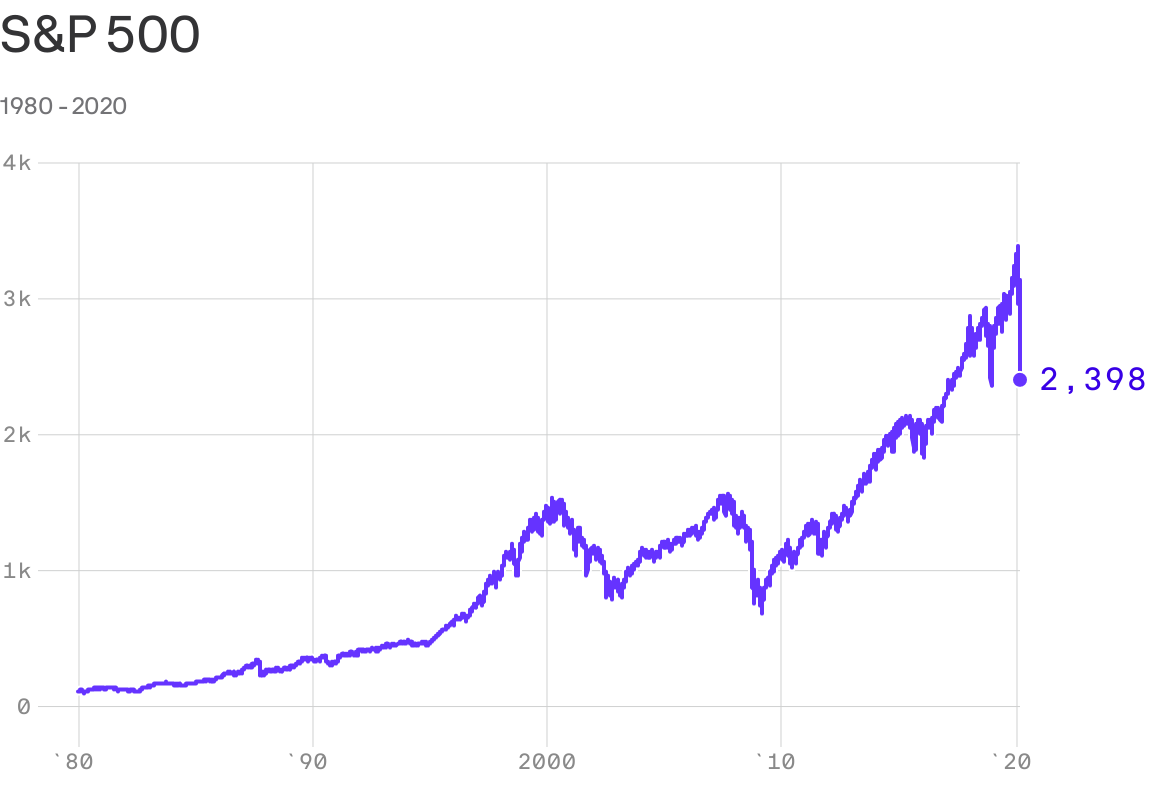A coronavirus guide for individual investors
Add Axios as your preferred source to
see more of our stories on Google.

The longest bull market of all time is over — so, what now? That's the question facing millions of individual investors in the U.S. and around the world.
The bottom line: How worried you should be depends entirely on your time horizon, and when you might need to start spending the money y0u have saved up in the market.
Investors are experiencing unprecedented volatility — as of Wednesday, we've now had eight consecutive days with the S&P 500 moving more than 4%, easily breaking the old 1929 record of six days. The S&P 500 moved more than 9% on three successive days on Thursday, Friday and Monday.
- That's a clear sign that Wall Street has no idea how to price assets right now. (Movements in other markets, like oil futures and corporate bonds, are similarly wild.) If the professionals are flailing, it makes sense that individual investors would also be confused and concerned.
Between the lines: For long-term investors, stocks are starting to look attractively priced for the first time in a while.
- The world is going to recover from the pandemic. When it does, there will be winners and losers in the market. But corporate America as a whole is likely to remain a highly profitable enterprise. The value of the stock market is always a function of future earnings, so even companies that suffered greatly in 2020 might be worth a lot of money in 2025.
- Long-term investors should expect to see years like this. The stock market has fallen more than 20% a little over once per decade on average, and the average peak-to-trough has been 33%. The current drawdown has happened particularly fast, but its magnitude is not unusual for a bear market — the S&P 500 fell 48% in 1973, 49% in 2001, and 47% in 2008.
- If you're putting money into your 401(k) every month, then this decline is good news for you: It's like a 30% off sale on all those future profits. Declines like this are where the likes of Warren Buffett make their fortunes.
- Even companies that go bankrupt aren't total losses. If you have a diversified portfolio including corporate bonds, then in bankruptcy some of those bond holdings might end up converting to shareholdings.
For individuals who will need cash in the next year or two, the current situation is much more worrying.
- There's no indication that the volatility we're seeing is going away, and the downside is bigger than the upside.
- If you need money to live on in your retirement, or because you've just been laid off, or because you want to put a downpayment on a house, then holding substantial savings in the stock market can end up vaporizing wealth you really need.
- Thanks to the stock market decline, you now have a smaller percentage of your net worth in stocks than you have had for a while. But if you're looking at savings you're going to need to spend and that you can't afford to lose, then having any money at all in stocks could well be too risky for you right now.
